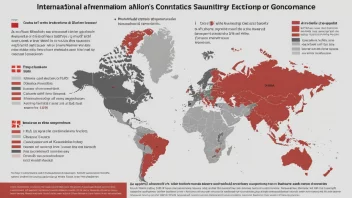Economics plays a crucial role in shaping global development strategies, impacting nations' abilities to grow, innovate, and improve living standards. As countries continue to navigate complex challenges such as poverty, inequality, and environmental degradation, understanding the interplay between economics and development becomes increasingly important.
At its core, economics examines how resources are allocated to meet the needs and wants of individuals and societies. In the context of global development, economic theories and models help policymakers identify effective strategies to stimulate growth. For instance, the concept of comparative advantage suggests that countries should focus on producing goods and services they can create most efficiently, ultimately leading to enhanced trade relations and economic interdependence.
One significant aspect of how economics influences development is through investment in human capital. Education and skill development are pivotal for economic growth, as a well-educated workforce can drive innovation and productivity. Countries investing in education reduce poverty levels and create a more equitable society. The World Bank argues that investing in education is one of the most effective ways to promote economic growth and improve overall well-being. This correlation between education and economic development illustrates the importance of economic policy in fostering sustainable growth.
Moreover, economic policies can address income inequality, a critical barrier to global development. Research shows that a more equitable distribution of wealth leads to better social outcomes, including improved health, education, and social stability. Countries that prioritize social safety nets, progressive taxation, and inclusive economic policies tend to experience more sustainable development.
In recent years, the role of technology in economic development has gained prominence. The digital revolution has transformed economies worldwide, enabling innovations that enhance productivity and create new markets. Countries embracing technology have experienced rapid growth, while those lagging behind face challenges in keeping pace. The rise of the gig economy and remote work are prime examples of how technology reshapes labor markets, requiring new economic policies to address emerging issues such as job security and labor rights.
Furthermore, the interplay between economics, environment, and development cannot be overlooked. As the world grapples with climate change, sustainable economic practices are essential. Economists advocate for the integration of environmental considerations into economic planning, leading to strategies that promote green technologies and renewable energy. By prioritizing sustainable practices, nations can achieve development goals while safeguarding the planet for future generations.
In summary, the impact of economics on global development is profound and multifaceted. By investing in human capital, addressing income inequality, embracing technology, and prioritizing sustainable practices, nations can create a path toward inclusive and sustainable growth. As we move forward, it is imperative for policymakers to consider the economic dimensions of development, ensuring that strategies not only foster growth but also promote social equity and environmental sustainability.
How Economics Shapes Global Development Strategies
Economics plays a crucial role in shaping global development strategies, impacting nations' abilities to grow and innovate.






